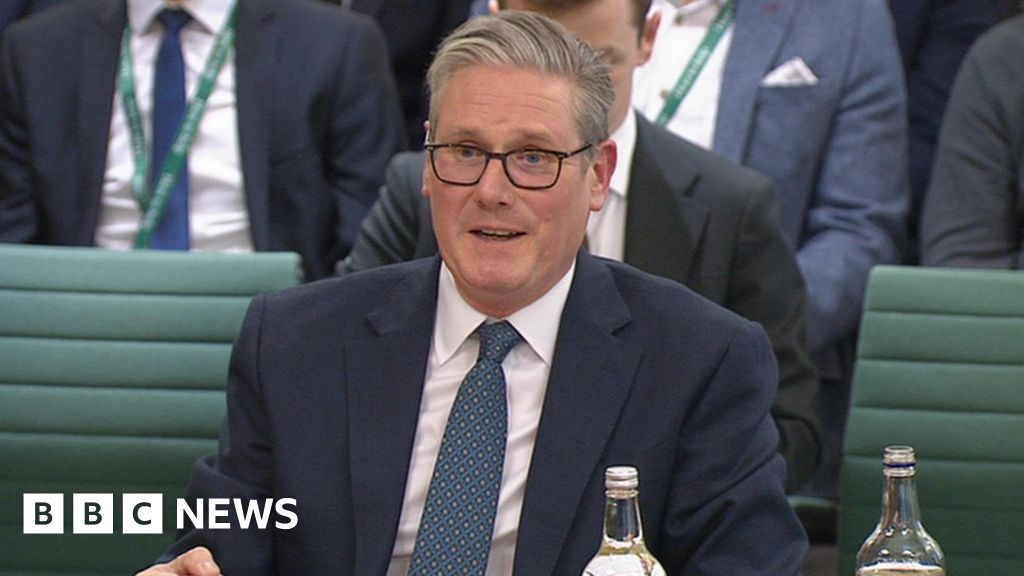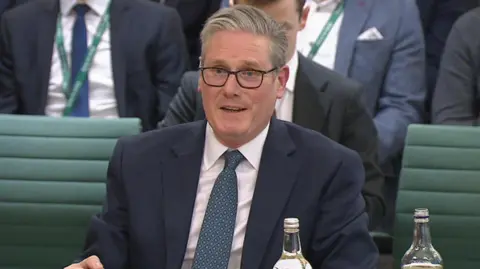
 UK Parliament
UK ParliamentSir Keir Starmer has warned it will “take some time” for people to feel richer, as he asked MPs for patience on his plans to boost economic growth.
The prime minister told a committee of senior MPs the UK had been suffering from “stagnant growth or low growth” for over a decade.
He added that October’s Budget would lead to more investment, and planned changes to planning rules would make a “huge difference”.
And he insisted he was still committed to achieving the highest “sustained” growth among G7 countries by the next election.
It comes as the Bank of England said the economy had performed worse than expected, with no growth at all between October and December.
Sir Keir set the G7 growth target in early 2023, more than a year before his party returned to power at July’s general election.
Earlier this month, he announced an additional target to improve living standards, leading to some accusations he was moving the goalposts on what he wanted his government to be judged by.
But in his first appearance before the liaison committee of senior MPs since entering Downing Street, Sir Keir insisted he was still committed to getting the UK growing faster other G7 members, which include the US, Germany and Japan, by 2029.
When it was pointed out to him that economic forecasts suggested this was not going to happen, he said they had not taken some future policy changes into account.
He cited a rise to the legal minimum wage, announced at October’s Budget, as an example of how ministers were boosting living standards.
He added that changes to the planning system, other “regulations” and new technology such as artificial intelligence (AI) would also help improve the UK’s economic growth rates.
‘Feeling the benefits’
Asked when people would feel better off, he said: “It will take some time, of course it will”.
“The planning will take time. The change in regulation will take time, we’ve got a national wealth fund which is investing, getting record investment into the country, that will take time.
“But already some of the lowest paid are already feeling the benefits of a Labour government through what we did in the Budget.”
Labour has complained of the inheritance it was left by the Conservatives, including a disputed £22bn “black hole” in spending plans for this year.
At the Budget it announced plans to raise taxes, including the amount of National Insurance paid by employers from next April.
Ministers have insisted the move was necessary to put the country’s finances on a firmer footing – but they have faced opposition criticism that the move will stymie efforts to boost the UK’s economic fortunes.




